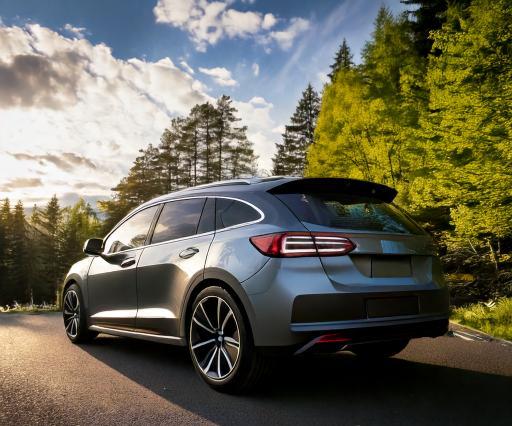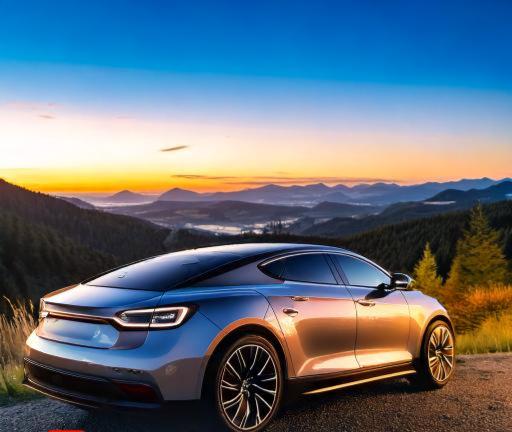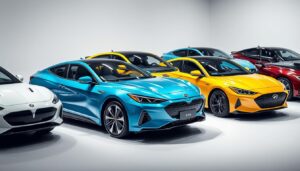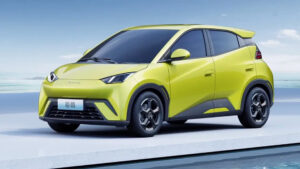
Introduction to Hybrid Cars and Their Benefits
Hybrid cars have gained remarkable popularity over the years, offering a perfect blend of traditional gasoline engines and electric power. These vehicles produce fewer emissions, have improved fuel efficiency, and often come with additional benefits such as tax incentives and rebate programs. As the demand for more environmentally friendly transport options continues to rise, consumers are increasingly on the lookout for the cheapest hybrid cars available. With many options emerging, it’s essential to consider factors like affordability, performance, and efficiency.
Comparison of Top Affordable Hybrid Car Models

When considering the most affordable hybrid cars for 2024-2025, an array of options stands out. Below is a comparison of some of the cheapest hybrid vehicles currently available:
| Model | MSRP | Fuel Efficiency (MPG) | Type |
|---|---|---|---|
| Toyota Prius | $25,000 | 54 Combined | Sedan |
| Honda Insight | $25,500 | 52 Combined | Sedan |
| Hyundai Ioniq Hybrid | $24,000 | 58 Combined | Hatchback |
| Kia Niro Hybrid | $26,500 | 53 Combined | Crossover |
| Ford Escape Hybrid | $30,000 | 40 Combined | SUV |
These models represent some of the cheapest hybrid cars 2023 has to offer, providing consumers with a diverse range of choices suited to different lifestyles and preferences.
Factors to Consider When Choosing a Cheap Hybrid Car

When evaluating cheap hybrid cars for sale, several factors come into play. Consider the following:
- Fuel Efficiency: Look for models that offer high MPG ratings to maximize savings on fuel.
- Initial Cost: Balance your budget against the purchase price and look for the cheapest hybrid vehicles within your price range.
- Running Costs: Assess the expenses related to maintenance and repair, as some models may incur higher costs post-purchase.
- Resale Value: Investigate which hybrid models retain their value well over time, as this will affect your long-term finances.
- Features and Comfort: Ensure that the vehicle meets your needs for space, technology, and overall comfort.
Pros and Cons of Owning a Budget-Friendly Hybrid Vehicle
Pros:
- Economical: Lower fuel costs lead to substantial savings over time.
- Environmentally Friendly: Reduced emissions contribute to lower environmental impact.
- Government Incentives: Many regions offer tax breaks or rebates for purchasing hybrid vehicles.
Cons:
- Higher Maintenance Costs: Some hybrids can be more expensive to maintain due to their dual powertrains.
- Complexities: Dual systems can lead to more potential points of failure, requiring specialized repairs.
- Limited Electric Range: Many hybrids have a restricted electric-only range compared to plug-in hybrids.
Tips for Saving Money on Maintenance and Fuel Costs
To keep your inexpensive hybrid cars running smoothly without breaking the bank, consider these tips:
- Regular Maintenance: Keep up with the manufacturer’s recommended service schedule to avoid costly repairs.
- Eco-Driving Techniques: Adopt driving habits that enhance fuel efficiency, such as smooth acceleration and deceleration.
- Use of Regenerative Braking: Familiarize yourself with how regenerative braking works to maximize battery replenishment.
- Proper Tire Inflation: Ensure your tires are properly inflated to improve efficiency and reduce wear.
Overview of Government Incentives for Purchasing a Hybrid Car
Government incentives can help make your journey toward owning a hybrid more affordable. Depending on where you live, potential tax credits, rebates, or grants can reduce your overall purchase price. Be sure to research available programs in your area, as they can significantly influence your decision on which hybrid to choose.
Testimonials from Owners of Inexpensive Hybrid Cars
Many owners of budget-friendly hybrids share positive experiences regarding their purchases. Customers frequently mention savings at the pump, lower emissions, and a generally quiet, smooth ride. Here’s what a few owners had to say:
- “I switched to the cheapest Toyota hybrid last year, and the fuel savings have been incredible! It’s a practical choice.” – Sarah, a satisfied Prius owner.
- “The Kia Niro offers the perfect mix of space and efficiency, and my family loves it!” – Mark, a family-oriented Niro driver.
Future Outlook for the Affordability of Hybrid Vehicles
As technology advances and consumer demand grows, the cheapest hybrid cars are expected to become more prevalent in the market. Automakers are focusing on developing more affordable options with improved battery technology and efficiency, aiming to make hybrid vehicles accessible to a broader audience. With this upward trend, 2024 and 2025 look promising for budget-conscious consumers.
Conclusion: Making the Right Choice for Your Budget
In summary, the landscape of hybrid vehicles is evolving, and the availability of affordable options is expanding. With models like the Hyundai Ioniq Hybrid and Toyota Prius leading the charge, consumers have a variety of choices that cater to different needs and budgets. When selecting the right hybrid car, it’s crucial to weigh the initial cost against long-term savings, fuel efficiency, and overall value. Finding the cheapest hybrid car that meets your requirements can lead to significant savings over time.
The Importance of Research and Test Drives
Before making a purchase, thorough research is essential. Utilize online resources, read reviews, and compare specifications to find the best fit for your lifestyle. Additionally, taking the time to test drive different models can provide valuable insights into comfort, handling, and features. This hands-on experience can help you make a more informed decision when searching for the cheapest hybrid car that suits your needs.
The Role of Dealerships and Online Platforms
When searching for the cheapest hybrid cars, consider both local dealerships and online platforms. Many dealerships offer competitive pricing and financing options, while online platforms can provide a broader selection and potentially lower prices. Don’t hesitate to negotiate and explore various purchasing avenues to secure the best deal on the cheapest hybrid car available.
The Future of Hybrid Technology
As the automotive industry continues to innovate, hybrid technology is expected to advance significantly. Future models may offer enhanced electric ranges, improved fuel efficiency, and lower maintenance costs. Keeping an eye on upcoming releases and technological advancements can help you stay informed about the best options available in the market, including the cheapest hybrid car options.
Final Thoughts
Owning a hybrid car can be a smart financial decision, especially with the growing number of affordable models. By considering factors such as fuel efficiency, maintenance costs, and available incentives, you can make a well-rounded choice that aligns with your budget and environmental goals. As we move into 2024 and 2025, the prospects for affordable hybrid vehicles look bright, making it an excellent time to explore your options and invest in a greener future.
Call to Action
Are you ready to make the switch to a hybrid vehicle? Start your journey today by researching the models mentioned above, visiting local dealerships, and taking test drives. Embrace the benefits of hybrid technology and enjoy the savings and environmental advantages that come with it! Don’t miss out on finding the cheapest hybrid car that fits your lifestyle
FAQs
What is the cheapest hybrid car available in 2024?
The cheapest hybrid car available in 2024 is likely the Hyundai Ioniq Hybrid, starting at approximately $24,000.
Are there any government incentives for buying a hybrid?
Yes, various tax credits and rebate programs exist, which can reduce your purchase cost significantly.
How do I maintain my hybrid to ensure it stays affordable?
Regular maintenance, eco-driving techniques, and ensuring proper tire inflation are key to keeping your hybrid running smoothly and economically.
What’s the difference between a hybrid and a plug-in hybrid?
A traditional hybrid uses both a gasoline engine and electric power but cannot be plugged in, while a plug-in hybrid can be charged externally and typically has a longer electric-only range.
By understanding your options and taking advantage of incentives, owning a hybrid vehicle can be a financially sound and environmentally friendly decision.Edit






